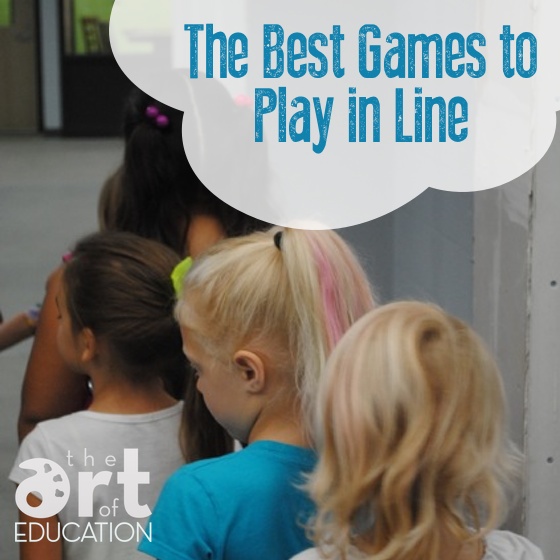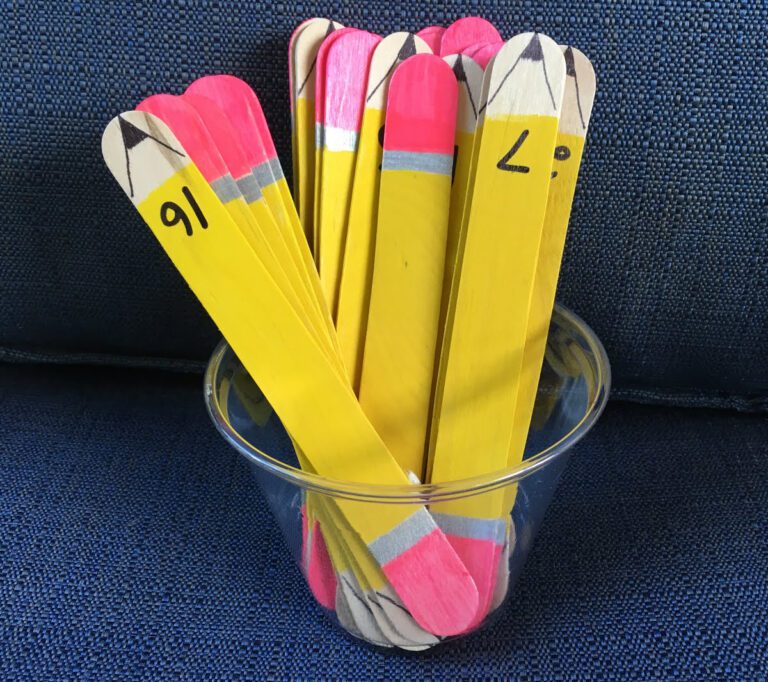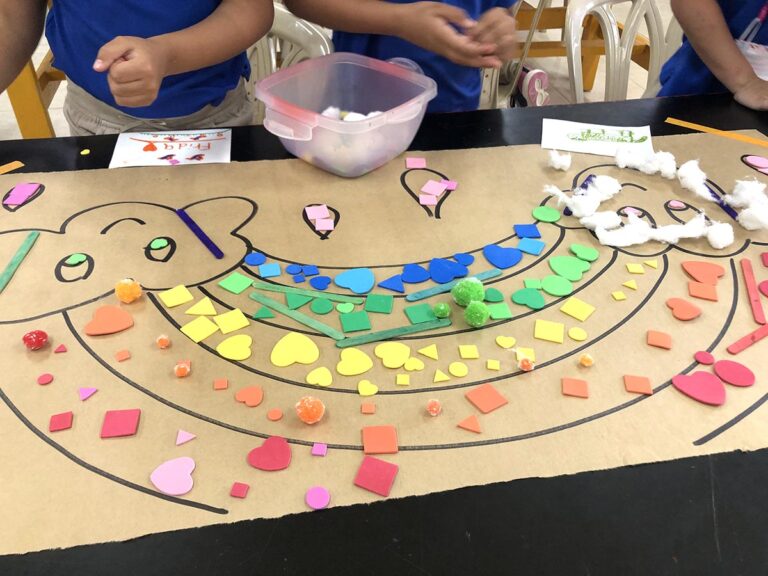Chew on this: if we line our students up with 3 minutes before the end of class, and we see our students weekly during the school year, we are missing out on over 100 minutes of instruction time! If your classes are 30 minutes long, that’s three weeks of instruction! Make that time count with these games to play while in line. WARNING: Some of these games ask kids to move and talk. You may need to adjust your ideas about what kids should and should not do in line!

1. Fantastic Shape
Students silently make shapes with their bodies. The teacher can call out the shapes, or a student needing a reward can direct the action. You can also ask students to work in pairs! If students can’t handle this activity, they can be removed from the line and wait in a seat.
2. Speak-a-Story
Build a tiny tale one word at a time. Each student adds a word to the story as you move down the line. Keep the story art-focused by starting out with phrases like, “The artist…” or “I saw a painting…” Continue moving up and down the line as time permits.
3. Build-a-Drawing
This is similar to the idea above. Instead of a story, start a collaborative, large drawing on the whiteboard. One at a time, students get out of line to add elements to the picture. Kids will stay focused on the evolution of the drawing, rather than on weak behavior choices.
4. Art Memory
Show students in line a piece of art for 10 seconds. Ask kids to name something they saw in the piece one by one until you run out of things remembered. Talk to students about focus and observation being “art muscles” to strengthen. Track their progress and see if the class can improve over time!
5. “How’s yours?”
One students steps outside while the rest of the class agrees upon and item, like a paintbrush. When the student returns, he or she asks each student in line, “How’s yours?” Each student answers: “Bristly,” “Soggy,” etc. until the student guesses the secret item. This game will really help with critique skills when looking for better descriptive words.
How do you keep your kids “in line”?
Any other games to share?
Magazine articles and podcasts are opinions of professional education contributors and do not necessarily represent the position of the Art of Education University (AOEU) or its academic offerings. Contributors use terms in the way they are most often talked about in the scope of their educational experiences.




